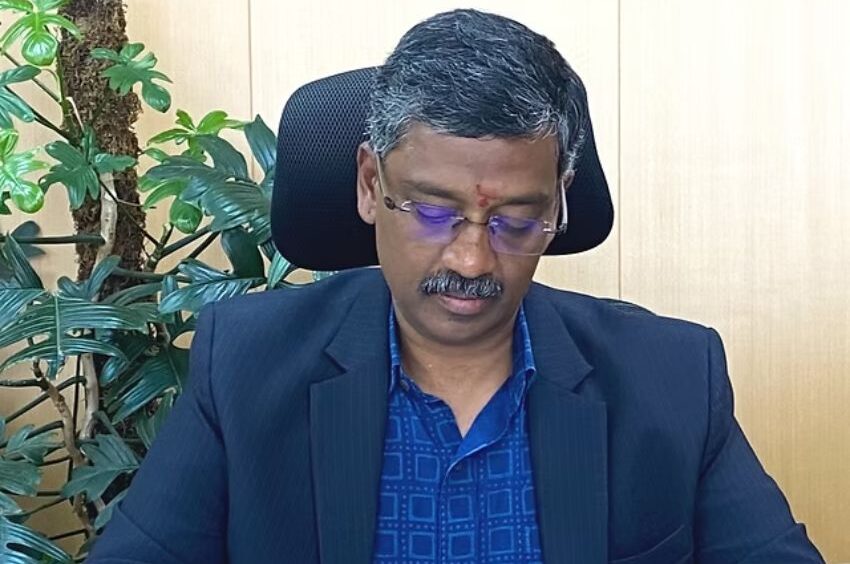‘Forest Is Not Just Trees And Tigers’: Karnataka Reframes Green Governance For A Climate-resilient Future

Principal Secretary of Forest, Ecology, and Environment, Government of Karnataka, IFS Srinivasulu says India’s forests are a “double-edged sword” for carbon balance and must be managed as engines of livelihood, climate security, and learning from nature itself
Bengaluru, October 23, 2025: India’s forests are no longer to be seen merely as wildlife habitats or tree cover but as living ecosystems crucial to human survival, said Srinivasulu, IAS, Principal Secretary to the Government of Karnataka, Department of Forest, Environment & Ecology. In an exclusive conversation, he stressed that the forest sector today stands at the crossroads of climate resilience, rural livelihoods, and scientific innovation — calling it a “double-edged sword” in the battle against global warming.
Forests: The Carbon Sink And The Carbon Risk
“Forest is a key sector in the climate initiative — it is a double-edged sword,” Srinivasulu explained. “Increasing forests increases the carbon sink, but degradation or forest fires can release carbon that has been stored for thousands of years.”
Citing progress since the Paris Agreement, he said India has nearly achieved its carbon sink target of 2.5 billion tonnes out of the 2.9 billion tonnes goal set under COP21, terming it a “remarkable effort by the forest sector.”
However, he warned that forests react sensitively to environmental changes, making their conservation a national imperative. “We must handle the forest sector very carefully — it can either mitigate or magnify climate change,” he noted.
Karnataka’s New Forest Narrative: Beyond Trees And Tigers
In Karnataka, the government is consciously moving beyond traditional definitions of forest management. “Forest doesn’t mean simply trees and tigers,” said Srinivasulu. “We are narrating a comprehensive definition for the common man — one that includes livelihoods, culture, and climate regulation.”
The state’s approach seeks to make conservation economically viable for local communities through eco-tourism and sustainable forest-based livelihoods. “Eco-tourism is flourishing. People are paying Rs 30,000 a night for a forest lodge with no AC or tiles because they value the experience of living in nature. This shows that conservation can also be an economic tool,” he said.
Lessons From Nature And The Need For Climate Literacy
Linking agriculture and forestry, Srinivasulu underlined that 30–40 per cent of India’s population still depends on agriculture, and the two are “deeply connected ecosystems.” To communicate climate change effectively, he said, the message must reach farmers in their own language.
“Our traditional Krishipanchang worked because weather was predictable. Climate change has broken that rhythm — farmers must understand this in relatable terms,” he said, adding that Karnataka’s forest department is working to “translate climate resilience into common man’s vocabulary.”
From Dandeli To COP21: A Personal Milestone
Recalling his contribution to the COP21 Paris Summit, Srinivasulu shared a personal milestone. His documentary on Kali Tiger Reserve — earlier known as Dandeli Anshi — formed part of the video Shanti Samsara, presented by Prime Minister Narendra Modi to the French President. “That documentary helped rename the reserve and showcased how the river shapes people and biodiversity. It was an honour to see it featured at COP21,” he said.
Redefining CSR As ‘Corporate Environmental Responsibility’
As a former Member Secretary of the Pollution Control Board, Srinivasulu has also argued for a shift from Corporate Social Responsibility (CSR) to Corporate Environmental Responsibility (CER). “Industries must go beyond building hospitals and distributing books,” he said. “They should focus on improving soil, air, and water quality — recharge groundwater, extend their sewage treatment facilities to nearby villages, and mitigate local climate impacts. That’s real social service.”
Tackling The Man–Animal Interface With Empathy And Economics
On the issue of human–wildlife conflict, Srinivasulu emphasised a “360-degree approach.” He noted that many conflicts arise because people live within forest areas with limited livelihood options.
“People think infrastructure is their problem — roads, schools, electricity — but actually poverty is the root problem,” he said. “We must bring them into the mainstream with employment opportunities outside inviolate forest areas. Poverty alleviation will reduce the pressure on forests.”
‘The Forest Is A Living Laboratory’
Calling forests “a living laboratory of life,” Srinivasulu said that biodiversity holds answers to future medical and technological breakthroughs. “Nearly 25 per cent of modern medicines have their origin in forests,” he observed. “Tomorrow, the country that holds the genetic library will lead the biotechnology revolution — just as rare earth metals power the IT revolution today.”
He concluded with a reminder: “Forests teach us balance. Nature has no pollution because it recycles everything. We must learn this lesson — diversify, reuse, and respect the cycles of life. Conservation is not charity; it is survival.”











































































































































































































































































































































































































































































































































































































































































































































































































































































































































































































































































































































































